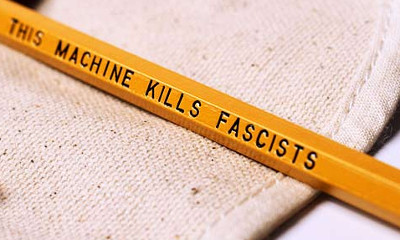 But we decided to give women a try at the codes. It was risky: "everybody knew" that women were bad at math and too gossipy to keep secrets. But eventually the women learned to break codes, broke codes, saved lives. And became skilled military intelligence analysts. This was back before databases, so you'd have women keeping track of paper files with paper indexes. And… maybe "file clerk" doesn't sound like a brainy person, but to understand the filing system, you had to keep track of enemy military organization.
But we decided to give women a try at the codes. It was risky: "everybody knew" that women were bad at math and too gossipy to keep secrets. But eventually the women learned to break codes, broke codes, saved lives. And became skilled military intelligence analysts. This was back before databases, so you'd have women keeping track of paper files with paper indexes. And… maybe "file clerk" doesn't sound like a brainy person, but to understand the filing system, you had to keep track of enemy military organization.
This book follows some USA ladies who broke codes. (More precisely: follows some white USA ladies. Apparently there were some code-nerds-of-color… but of course they were in separate units than the white folks and of course we don't have records of them (so this historian didn't have much to say about them beyond that it was a pity we don't know more) and and and I swear reading about history is half the speed of reading about anything else because you have to stop to roll your eyes about every other sentence.)
Most of the material is life-on-the-home-front bits: Educated women were sneakily recruited from around the USA and brought to Washington DC. They lived in crowded conditions. Northerners and Southerners had to get along. There were shortages, there were outings. But you can also get some idea of how the code-breaking orgs grew. Towards the start, part of the clown-shoes-ness was pretty awful: the USA Army and Navy were rivals. So… at first, cracking codes wasn't seen as a way to save USA folks' lives, but rather as some strange competition—and you wouldn't ever help the other side of a competition, right? But eventually the army and navy folks… well, they didn't work together but they figured out how to divvy up the work so that they could work separately without duplicating effort. And cracking codes is difficult, but at first we figured out just a part of the code, but enough for traffic metadata: we figured out the part of a message that said who the message was to. So if there was a burst of messages to some ship's captain, we could guess that ship was going to do something important soon. And then we broke some codes, so we could start reading messages. And then read more messages—and grew our organizations so that there were enough people to read all the messages and keep track of them all and figure out what the bad guys were doing.
There are probably lessons to learn about codebreaking and about scaling up organizations and plenty of things… but there's not so much about that in the book. But there's plenty of human interest. The anxiety of breaking codes for messages in which the enemy dispatch ships to sink troop transports on which one's brother sits. Writing postcards to plenty of GIs, occasionally marrying them. Knowing that working harder means saving more boys; learning that working too much harder means burning out and saving nobody.
